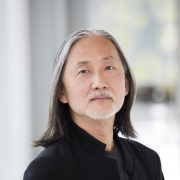Study Finds Straightforward Way to Model Growth of Vein Networks
A new study by Eleni Katifori, assistant professor of physics and astronomy, and Henrik Ronellenfitsch, a postdoc in her lab, describes how a simple rule guides the development of the vasculature in both animals and plants.
The researchers used mathematical modeling to show that this rule, known as adaptive feedback, can produce the most efficient possible network of veins for any organism.
Their findings were published in Physical Review Letters.
The idea of adaptive feedback has been known in biophysics for some time. It refers to when plants and animals use the rate of liquid flow through their veins to decide to increase the size of the pathways and where to get rid of them.
“It’s a very simple rule,” Katifori says. “You use the vessel or you lose it.”
A model using the rule of adaptive feedback alone, however, wasn’t able to predict the kind of efficient vascular systems that appear in real-life organisms. There was a discrepancy in the field between development models predicted by adaptive feedback and the systems predicted to be most efficient.
Ronellenfitsch theorized that using adaptive feedback alone was not enough to predict how veins develop, and he set out to find what other variables he needed to explain it. It only took one other factor to set the model straight: growth. Ronellenfitsch found that, when he factored in the growth of an organism over time, the model fit real-world vein networks.
“Once I had the derivation, the rest was almost straightforward,” Ronellenfitsch says. “It came as a surprise that it works as well as it does.”
Click here to read the full story.





